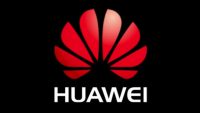Facing New Pressure, Huawei Trademarks Own Mobile OS
May 27, 2019
As the trade war between China and the U.S. escalates, the Trump administration’s order preventing telecoms from using foreign-made hardware that could threaten national security has placed Huawei under increased scrutiny. As a result, a number of major tech companies — including ARM, Broadcom, Intel, Qualcomm and Xilinx — as well as carriers in Japan, Taiwan and the U.K. have stalled business with Huawei. Since Google plans to cut off Android support for new Huawei phones, the Chinese company faces significant trouble in Europe where it historically has been very successful. In response, Huawei is taking matters into its own hands and was granted a trademark last week for a smartphone OS to replace Android.
Google’s move “will hobble [Huawei’s] European users and highlights how deeply the Continent relies on American and Chinese companies for gadgets, apps and Internet services,” reports The New York Times. “From its early days selling equipment to wireless carriers, Huawei has expanded at an extraordinary rate in Europe, capturing more than a quarter of the smartphone market.”
Canalys senior analyst Ben Stanton described Google’s move “potentially catastrophic” for Huawei in Europe. “Huawei has been the darling of the European smartphone industry for the last three or four years,” he said.

While Huawei smartphones are largely unavailable in the U.S. and Google services are blocked in China, the phones “are best sellers in countries like Greece, Portugal and Spain,” notes NYT. “Those phones, plus robust sales of telecommunications equipment, have made the market covering Europe, the Middle East and Africa into Huawei’s second biggest after China.”
Meanwhile, Huawei is hoping that a new mobile operating system as an alternative to Android will help keep its customers. The company “was granted a trademark, ‘Hongmeng,’ for the operating system by the trademark office of China’s National Intellectual Property Administration,” according to The Wall Street Journal. “The company has been working on the system under the code name ‘Project Z’ as an insurance policy in case it lost access to American technology like Android, which powers Huawei’s popular smartphones, and hopes to release it later this year.”
However, convincing customers to switch operating systems is a major challenge. Major players including Microsoft and Samsung have introduced alternatives to Android, but failed to gain traction.
Details of Hongmeng have yet to be revealed. “Within Huawei,” notes WSJ, “fostering a new ecosystem of widely used apps to go with the operating system will be the biggest challenge and it would take at least two to three years, according to a person familiar with the matter.” Analysts suggest that it would be easier to get Chinese users to make the change to a new OS and a suite of apps than those customers outside the country.
Richard Yu, who heads Huawei’s consumer business, said the OS could launch in China by the end of 2019, followed by international markets in early 2020.

No Comments Yet
You can be the first to comment!
Sorry, comments for this entry are closed at this time.